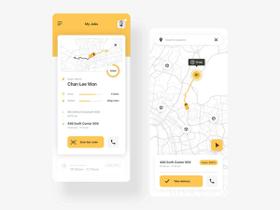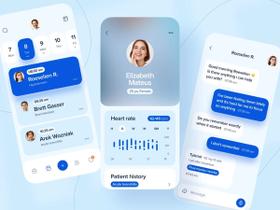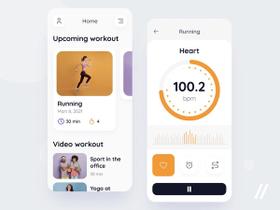What is IoT Monitoring?
Published: September 18, 2023
6 min read
In this article, you'll learn:
1
💻 IoT Monitoring: What Is It and Why Is It Important?
2
📝 Benefits of IoT Monitoring
3
⚙️ Tech Stack for IoT Device Monitoring
4
👂 Takeaways
In today's world, there is a huge growth in Internet of Things technologies. From smart homes to soil monitoring in agriculture, IoT permeates all areas of our lives.
According to Juniper Research, 83 billion devices will be linked to networks by 2024, a 130% increase over the 35 billion devices that were connected to networks in 2020. Additionally, if 5G connections are utilized more often, this figure may rise even further.
Each new network device consumes resources, creates data, and connects with other devices and services. As a result, adding more devices brings both possibilities and risks to the performance of your apps, systems, and services.
In this article, we will talk about IoT monitoring and why it is important for optimizing your business. Let's start!
💻 IoT Monitoring: What Is It and Why Is It Important?
IoT monitoring is the process of discovering, monitoring and managing the connected devices that constitute the Internet of Things. It is a subset of general IT monitoring with a specific focus on IoT devices and connectivity.
📝 Benefits of IoT Monitoring
An organization could benefit from a successful IoT monitoring process in the following ways:
-
Performance and Availability Monitoring of Your IoT Fleet: Utilizing the Internet of Things to monitor your vehicle fleet, or to develop an app to track mental health, is paramount for well-functioning transportation and healthcare services. By receiving maintenance notifications, you can proactively address potential vehicle issues and reduce repair costs.
-
Real-time Emergency Alerts: Real-time notifications empower you to address issues as they arise, minimizing delays and ensuring your devices operate at their peak performance.
⚙️ Tech Stack for IoT Device Monitoring
Here we have prepared for you several tools for IoT monitoring:
-
IBM Watson IoT is distinguished by its strong connectivity, functionality, and adaptability, providing users with the flexibility to add or remove devices as needed. One of its advantages is the ability to remotely reboot devices and perform updates through the IBM IoT monitoring dashboard, streamlining device management processes.
-
Salesforce IoT Cloud is a versatile solution suitable for sales organizations of all sizes. It facilitates the collection of data from customers, devices, and partners, empowering businesses to optimize their operations and attract more clients.
-
Microsoft Azure IoT Suite, developed by Microsoft, provides components such as Azure IoT Hub and Azure Digital Twins that allow users to tailor IoT solutions to their specific needs. Benefits of using this tool include edge-to-cloud IoT monitoring, customizable metrics, seamless integration with Azure Event Grid, and bidirectional communication capabilities with a huge number of IoT devices.
-
Amazon AWS IoT Core facilitates the rapid connection of countless devices to the cloud. This platform boasts several key features, including the ability to support an extensive network of connected devices and messages, a versatile AWS IoT Device SDK for mobile and hardware device connectivity, and a helpful tool called Device Advisor for cloud-based testing and network security. One of its standout advantages is its scalability, accommodating billions of devices and connections. Additionally, AWS IoT Core offers a free tier, allowing up to 2.25 million connections per minute and 500,000 messages per month, making it accessible for various applications and budgets.
-
Oracle IoT is a IoT solution that facilitates the connection of various aspects, including assets, logistics, transportation, and intelligent manufacturing. Features of Oracle IoT: work-in-progress monitoring, connected logistics, service tracking, shipping monitoring, inventory management, and the creation of secure workplace environments through connectivity and monitoring. One of its significant advantages is its seamless integration with Oracle's suite of applications, which includes ERP, CRM, H.R., and supply chain management, all within a single platform.
Was it helpful?
Read also

IoT in Logistics & Transportation

IoT in Healthcare: From Clinics to Mobile Apps

IoT in the Fitness Industry: Devices, Use Cases & Tips

How Much Does It Cost to Develop an IoT Application: A Case Study-Based Roadmap

How to Build an IoT Application: The Way to Success
Our clients say
![Stormotion client Max Scheidlock, Product Manager from [object Object]](/static/33294af91c38256bcd5a780ddc41861a/b0e74/max.png)
They understand what it takes to be a great service provider, prioritizing our success over money. I think their approach to addressing ambiguity is their biggest strength. It definitely sets them apart from other remote developers.
Max Scheidlock, Product Manager
HUMANOO
